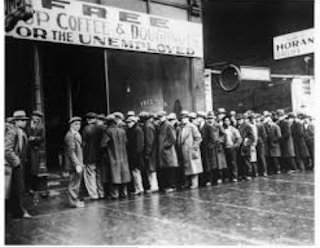Should the United States Government use tax revenues to support socially, both legal residents and citizens of the country? Prior to 1933 this was not done, but the "New Deal" of F.D.R.'s administration commenced with programs to offer funding and programs to help those in need. Was this activity constitutional??
Entry due Tuesday November 12th
I copied the below from the Oyez, Oyez web page:
STEWARD MACHINE COMPANY v. DAVIS
Facts of the Case
The Steward Machine Company challenged the validity of a tax imposed by the Social Security Act. The Act established a federal payroll tax on employers; however, if employers paid taxes to a state unemployment compensation fund (created by the states subject to federal standards), they were allowed to credit those payments toward the federal tax.
Question
Did the Act arbitrarily impose taxes in violation of the Fifth Amendment or subvert principles of federalism?
Conclusion
In a 5-to-4 decision, the Court held that the tax under the Social Security Act was a constitutional exercise of congressional power. The Court found that the tax was uniform throughout the states and did not coerce the states in contravention of the Tenth Amendment. The Court took note of recent unemployment statistics from the years 1929 to 1936, maintaining that "[i]t is too late today for the argument to be heard with tolerance that in a crisis so extreme the use of the moneys of the nation to relieve the unemployed and their dependents is a use for any purpose narrower than the promotion of the general welfare. . .The nation responded to the call of the distressed."










